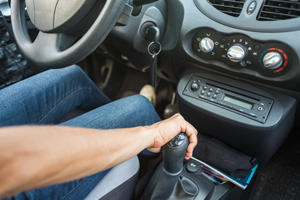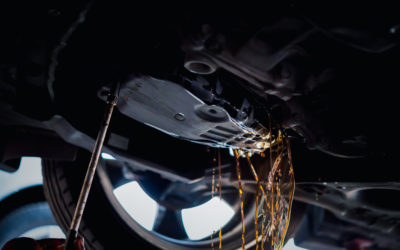Over time, you become closely attuned to your car. You know how it should feel and sound, meaning you start to notice when it doesn’t respond the same way as usual. As your clutch wears out, there will increasingly be signs that should catch your attention. Some of these are earlier indicators, while others may mean you’re nearing clutch failure. In any case, it’s best not to procrastinate scheduling an appointment with your mechanic for a clutch repair if you notice any of these signs.
Related: Top Ways to Check if Your Transmission is Going Out
Related: Three Maintenance Tips to Avoid Transmission Problems
Related: 3 Warning Signs Your Clutch is Going Bad
Oil Care For All
Don’t waste time and inconvenience yourself with oil changes. Care for your car, here!
Your Clutch Pedal Feels Spongy
With a healthy clutch, the pedal should feel firm and not have to be depressed too far toward the floor of your car. Over time, it’s normal for your clutch pedal to gradually become softer, but it’s also an indication you should have your clutch inspected, since it can mean parts are wearing out or there’s air in the system.
Changes in the Clutch Pedal are Early Indicators of a Necessary Clutch Repair
Any change in how your clutch pedal feels shouldn’t go unchecked. Whether it feels soft and spongy or starts to vibrate, take note of the change and have your mechanic inspect your clutch and other related systems. While this can be an early indicator of clutch trouble, it can easily and quickly grow into a larger, costlier car repair.

It’s Difficult to Change Gears
When shifting gears, does it feel more difficult than it used to? A healthy clutch will slide right into gear and allow proper acceleration based off that gear. As soon as you notice it’s become more difficult to shift into any gear or one in particular, you should have a mechanic take a look.
This May First Show Up When Shifting in and Out of Reverse
Typically, this difficulty shifting is first noticed with Reverse and First Gear, if you drive a manual transmission. This is because Reverse requires your transmission to completely reverse the direction of motion, which puts the most strain on your clutch and transmission. No matter which gear you’re having difficulty with, it’s important to pay attention.

Your Clutch’s Biting Point is Higher than it Used to Be
The biting point is where, as you’re raising your foot off the clutch pedal, you notice the engine and wheels start to engage. If you drive a manual transmission car, you’re likely very familiar with your clutch’s biting point. Take note when the biting point is noticeably higher than it used to be, as it can be an indication you need a clutch repair.
This Can Also Indicate Your Clutch Needs Adjusting
A high clutch biting point doesn’t necessarily mean a major repair, though it can. It may also simply mean your clutch needs adjusting, which is a simpler clutch repair that can make a big difference in how your clutch feels and your car drives.
You Notice Hesitation when Accelerating
When you shift gears, your clutch and transmission should immediately adjust the power sent to the axles and wheels of your car. If you notice hesitation when shifting gears, it’s an indication you should have your clutch inspected. This will likely also accompany higher RPMs and more noise from your engine as that power isn’t able to transfer out of the engine.
Clutch Slipping Can Indicate a Worn Clutch Disc
This hesitation is also known as clutch slipping and can mean you have a worn clutch disc. While difficulty getting into gear tends to show up first with lower gears or Reverse, clutch slipping tends to happen with higher gears. The sooner this is inspected by a mechanic, the better.

Got a Clutch Problem? Come to an AAMCO Louisville Auto Repair Shop
If you need a clutch mechanic in Louisville, look no further than the nearest AAMCO. Whether you need a clutch repair or any other car care service, we’ll help get you safely and confidently back on the road in no time. Keeping your car in its best condition is our top priority. Schedule your appointment with us easily online today!
Troubleshooting Transmission Shifting Issues
Transmission problems can run the gamut from new noises to difficult shifting. The first step to fixing the issue is to understand what may be going on inside the transmission, whether it’s a problem with fluid or worn components. Don’t let shifting issues continue —...
read moreFluid Fiasco: Diagnosing and Next Steps for Transmission Leaks
From small drips to big puddles, car fluid leaks of any size can cause problems. Like many of your car’s systems, the transmission relies on adequate fluid. When the transmission is operating as it should, fluid provides both lubrication and hydraulic pressure. That...
read moreClutch Conundrum: Unveiling the Telltale Signs of a Worn-Out Clutch
When easy shifting turns to grinding gears, it’s time to take a look at your car’s clutch. This system is essential to keep your vehicle moving. The clutch is responsible for facilitating each gear shift, which determines how much torque is sent to the drive wheels to...
read more



